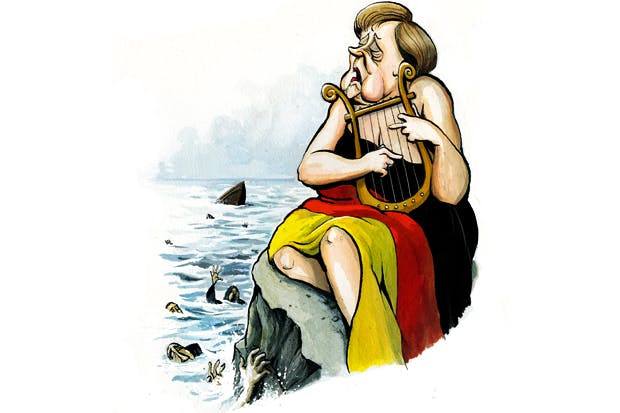The female leader of a prominent European country fails to win a majority in an election and then struggles to form a coalition. Meanwhile, her government limps from crisis to crisis and finally negotiations break down, leading to another general election just weeks later.
Not Theresa May, obviously, because she had little difficulty in forming a workable coalition with the DUP. But it is the situation in Germany where today Angela Merkel said that she has given up on trying to create a workable government with the Free Democratic Party, the Christian Social Union and the Greens. There will now almost inevitably have to be another general election, with Angela Merkel – rather than Theresa May – likely to be out on her ear by Christmas.
Funny enough, though, I haven’t heard too many Remainers today drawing attention to the chaos in German politics. To many of them, of course, Merkel is everything that May isn’t – a confident national leader who has earned the respect of her people and who has demonstrated a humane attitude towards migrants. But it isn’t just the chaos which undermines a favourite narrative of the Remain lobby. The reasons for the breakdown of the coalition negotiations question another couple of favourite narratives.
Britain, as we all know, is drifting away from Europe because it is a nasty, xenophobic, racist country which can no longer live with open borders. Except, er, that Merkel’s poor performance in the September elections was largely down to the anti-migrant party Alternative fuer Deutschland (AfD) winning 12.6 per cent of the vote and 94 seats in Parliament. This is a party far more extreme than Ukip, whose former leader Frauke Petry suggested earlier this year that the police should consider shooting migrants crossing into the country from Hungary (not exactly in the spirit of free movement) and whose current deputy leader Beatrix von Storch said recently that Islam does not belong in Germany. Further, coalition negotiations have broken down partly because the Free Democratic Party demanded a cap of 200,000 refugees – something the Greens wouldn’t accept. Merkel’s foolish decision to throw open Germany’s doors to migrants in 2015 – much praised in Britain at the time – continues to cast a huge shadow over her career.
Not only is Britain a nasty, xenophobic country, according to certain narratives; it also finds it difficult to co-operate with its European neighbours over things such as the environment — which will deteriorate in Britain once we have left the EU as the government comes over all neo-liberal. Yet one of the other big sticking points in Merkel’s coalition negotiations was over coal-burning – the Greens want to close the coal-fired power stations which still provide 40 per cent of Germany’s electricity, and the Free Democratic Party worries that it would harm the economy.
If Remainers are really looking for a country with a chaotic government, a sizeable population of Islamophobes and whose record on the environment has failed to live up to its preaching, they should be looking on the other side of the North Sea.






Comments